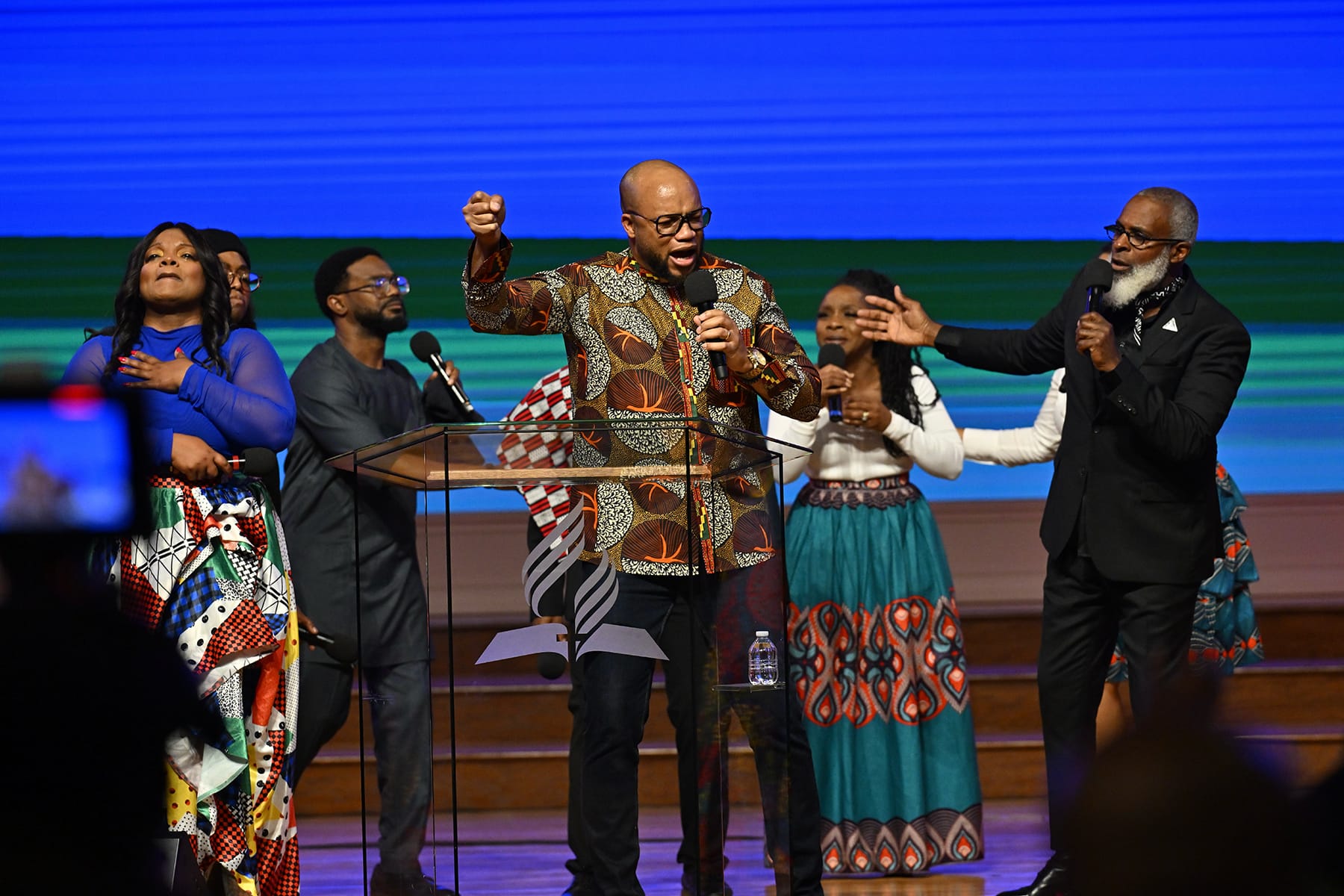
“At PELC, you just might experience spontaneous praise syndrome!” Oakwood University Church pastor Kimberly Mann said in her welcome to the 2023 Pastoral Evangelism and Leadership Council (PELC), held on the university campus in Huntsville, Alabama, United States, December 3-6.
As predicted, over four days, PELC attendees couldn’t help but raise their arms, stand to their feet, or shout “Amen!” and “Mercy!” in response to a deep and powerful message or spirit-filled praise song.
For the hundreds of pastors, chaplains, and other ministry leaders present, PELC offered spiritual renewal and inspiration, fellowship, and equipping. This year’s theme, “Change: Expanding minds. Engaging generations. Enhancing ministries,” was weaved into every aspect, from music to messages to seminars.
Established more than 40 years ago by regional conference leaders, PELC is the largest annual gathering of pastors and church leaders in the North American Division. The 2023 PELC was the largest in its history, with more than 800 registered attendees, most attending in person and others connecting online. It was also one of the most diverse, with participants coming from across the U.S. and Canada, Fiji, Kenya, South Africa, the U.K., and several Central American and Caribbean countries.
PELC Speakers Call for Change in Chaotic Times
“Of all the things we do here, evangelism is paramount,” Jesse Wilson, director of PELC and Oakwood’s Bradford Cleveland Brooks Leadership Center, said on day one. He continued, “Two years ago, we added leadership to our emphasis on evangelism, but if you don’t baptize, frankly, you don’t have [anybody] to lead.” Accordingly, all of the programming served ministers and called them to new levels of spirituality and leadership.
On December 3, opening speaker James Doggette Sr., pastor of Patmos Chapel Seventh-day Adventist Church in Apopka, Florida, coined the week’s catchphrase, “It’s just a slab."
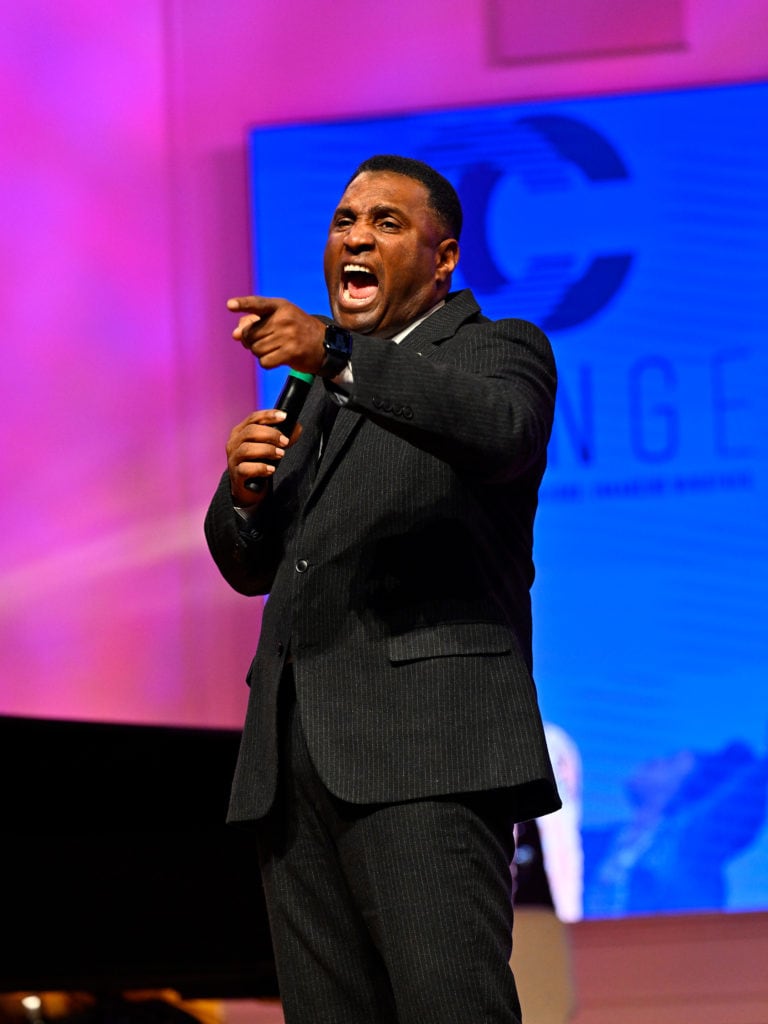
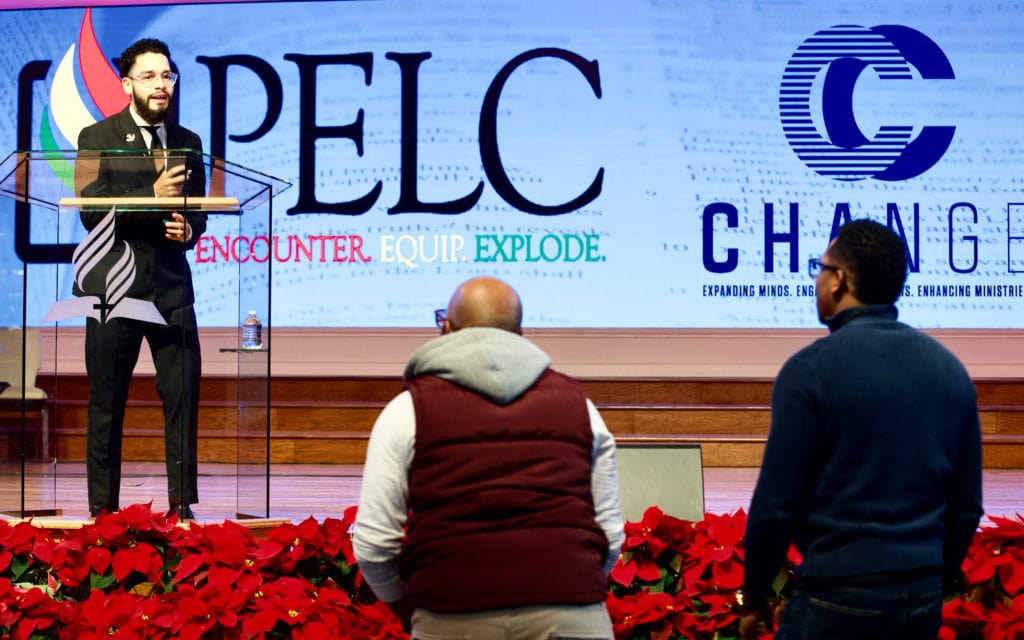
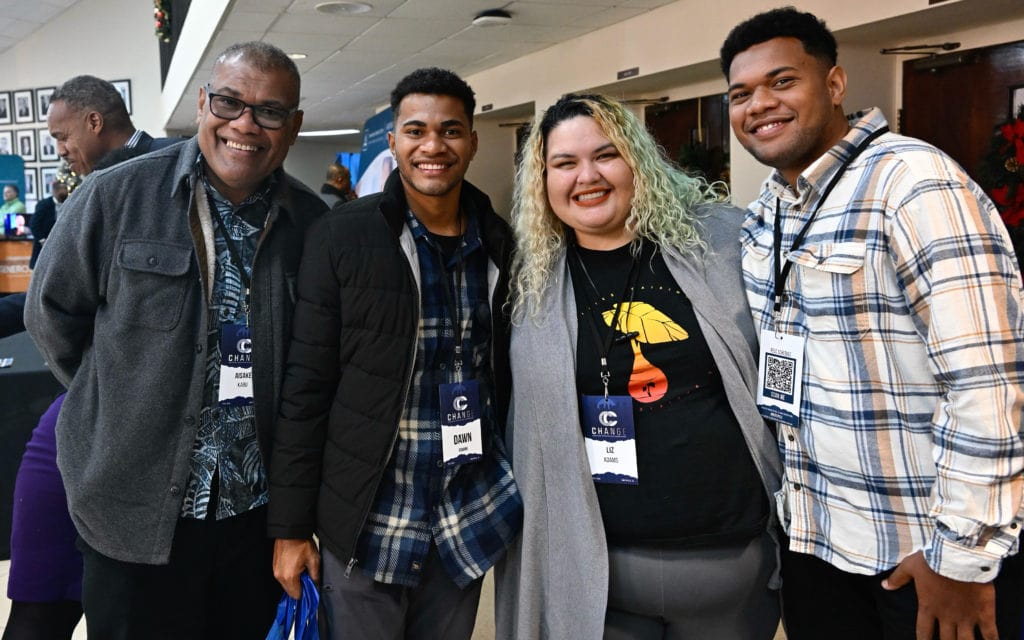
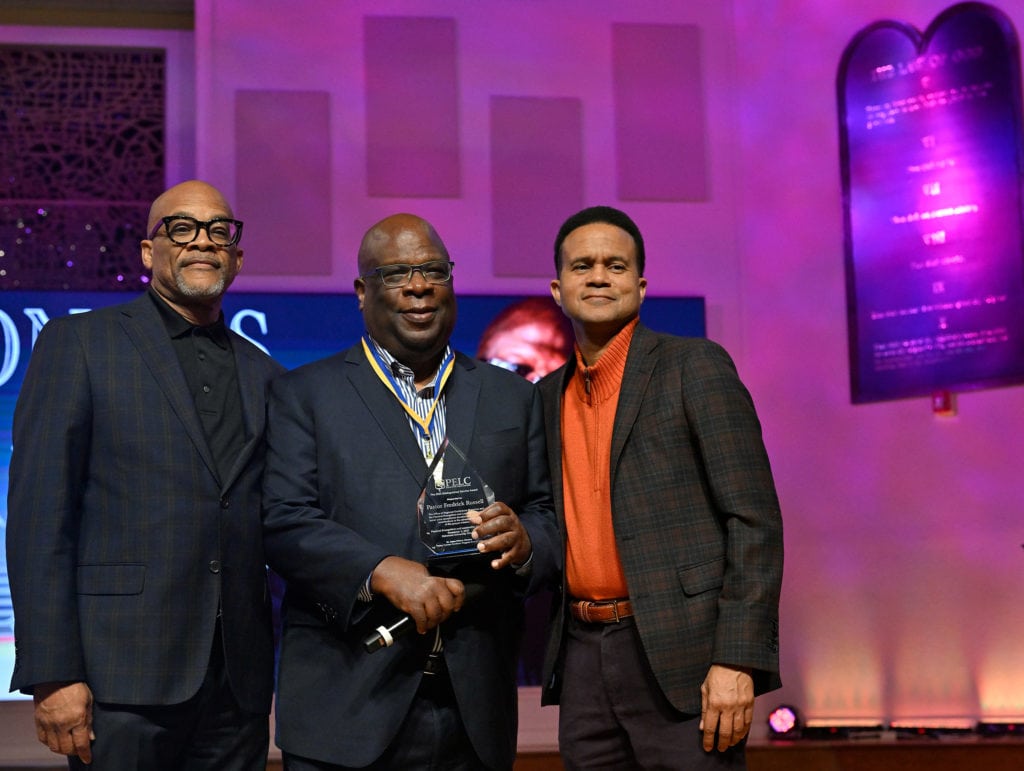
His message, titled “The Sermon and the Slab,” referenced the setting of a foundation, or “slab,” for the new temple in Jerusalem 70 years after Solomon’s temple had been destroyed. Rebuilding the slab was phase two of restoring regular worship once Israel had come out of captivity, the first being reinstituting daily sacrifices. That is to say, “theology before methodology.”
But at the time of the “slab,” many older men wept aloud amid the celebration because they felt the new slab, structured differently, and cut by the younger generation, was inferior to the previous one. “Change is hard,” Doggette acknowledged. “But for everyone who wants to be involved in transformational, visionary ministry, change is necessary,” he said.
His next words elicited much spontaneous praise: “Seventh-day Adventists are identified by a belief system that is biblically based. Stop conflating cultural Adventist norms with theology. A Brooks Brothers suit versus jeans and Jordans, for instance, is not theological. It’s just a slab. Fast, rhythmic music versus slow-moving hymns is not theological. It’s just a slab. A traditional sanctuary with pews versus a contemporary industrial auditorium with chairs is not theological. It’s just a slab.”
Doggette emphasized that he was not espousing “a cheap or bloodless grace that does not require obedience or sacrifice.” Describing himself as having a conservative theology but liberal methodology, he avowed, “While we need a new method, we don’t need a new message.”
Other speakers emphasized trusting God in uncertain times and dead situations, referencing COVID-19, racial inequities, natural disasters, wars, and other end-time events. “The world is a mess,” Roger Bernard, president of the Central States Conference of Seventh-day Adventists, said on Tuesday night. In 1 Kings 18, Obadiah hid the preachers in a cave during a famine, and they grew useless. Bernard compared them to pastors in caves unwilling to “visit people or take calls after 9:00 p.m.” He didn’t mince words: “Come out of the cave, preacher! Preachers have no business in caves if they want to see change.” He concluded, “We need the presence and power of the Holy Spirit in a way we’ve never had before. When it rains, our churches will get focused. When it rains, people will grow spiritually. When it rains, Jesus will come to take His people home.”
PELC began with a self-proclaimed “senior citizen” and ended with a member of Gen Z, Max Gomez, associate pastor of Hilltop Community Worship Center Seventh-day Adventist Church. Wilson confirmed that this selection was intentional. “The whole idea of change across generations, different generations spoke, and they were heard.”
The final morning, Gomez shared that in Judges 3, Ehud, a Benjamite, is described as a left-handed man, an anomaly as “Benjamite” means son of the right hand. He used what was viewed as a weakness, his left-handedness, to help him kill Israel’s oppressor, Eglon, Moab’s overweight king. Ehud stealthily stabbed Eglon in the belly while on assignment to give him a tribute. “They had the deliverer doing deliveries,” Gomez emphasized. Also, as Israel was not a fighting nation, Ehud used a double-edged sword he had created. Gomez highlighted that, among his overlooked talents, Eglon was ambidextrous, a blacksmith, and a musician.
“Look at how multifaceted Ehud’s left hand was. Ehud built with his left hand what had never been built before.” He spoke directly to the leaders present, “What would ministry look like in 2024 if we stopped limiting the dexterity of our pastors?”
And to the “Ehuds” in the audience, he said, “Your left hand is your creativity and ingenuity that emerges from a place of scarcity.” He urged them to declare, “Everything God has ordained me to do, I’m going back to my church, I’m going back to my district, I’m going back to my city, and I’m gonna start using my left hand.”
The original version of this story was posted on the North American Division news site.